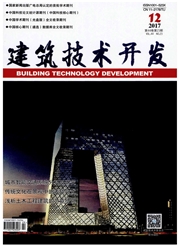

 中文摘要:
中文摘要:
采用电石渣和矿渣等工业废料对Pb污染土进行改良,通过对电石渣联合矿渣改良Pb污染土的无侧限抗压强度、压缩特性、水稳系数、Pb离子浸出浓度进行试验性研究,并通过微观扫描电镜对改良路基土的机理进行佐证分析。试验结果表明:在相同集料掺量下,改良未污染土的无侧限抗压强度qu高于Pb污染土;经15%~25%集料改良之后的孔隙比,较Pb污染黏土孔隙比小;改良Pb污染土的水稳系数低于改良未污染土;相同集料掺量作用下,浸出液中Pb2+浓度随着养护龄期增长而降低;矿渣在电石渣生成的碱性环境下,发生水化反应形成大量致密的水化硅酸钙C-S-H网状结构产物。
 英文摘要:
英文摘要:
Acetylene sludge and slag has been used in improving soils contaminated by lead. The unconfined compressive strength test(UCS),consolidation test,water-related adaptability coefficient test and Pb leaching test were operated,moreover,the scanning electronic microscope(SEM) was used to analyse the mechanism of improved soil. The UCS test showed that strength of uncontaminated soil was higher than soils contaminated with Pb under the same content. The consolidation test showed that with 15% ~ 25% of acetylenes sludge and slag in soils,void ratio was higer than uncontaminated soils. The water stability coefficient test showed that contaminated soil treated with aggregate increased its water stability coefficient. The leaching test showed that the concentration of Pb2 +in contaminated soil leachate increased with curing age. The SEM result showed that the acetylene sludge could be hydrated under alkaline environment and form amount of hydration products of C-S-H.
 同期刊论文项目
同期刊论文项目
 同项目期刊论文
同项目期刊论文
 期刊信息
期刊信息
